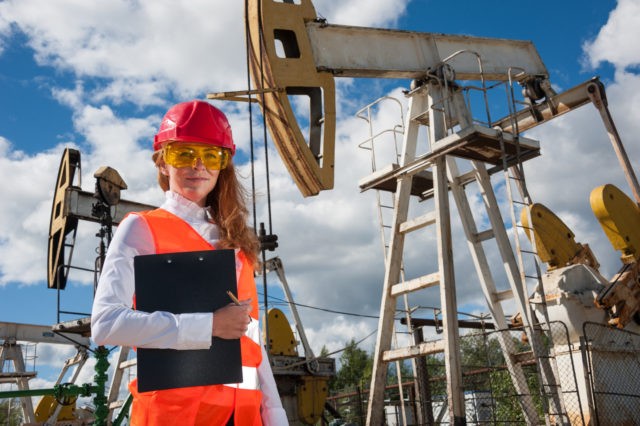Factory activity in Texas has regained its pre-pandemic pace of expansion despite rising infections that have slowed or reversed reopenings in the state, according to a survey of manufacturers released by the Federal Reserve Bank of Dallas Monday.
The Dallas Fed’s production index, a key measure of factory activity, rose to 16.1 in July, the third straight month improvement of Texas factories’ activity. That puts it roughly on par with February’s pre-pandemic levels of 16.4.
The regional manufacturing surveys conducted by Fed banks can be leading indicators because they reflect data collected very recently. Data for the survey was collected between July 14 and July 22. Hard data on manufacturing, such as durable goods orders, often comes out only a month or two later.
“Texas factory activity continued to expand in July following a record contraction in the spring,” the Dallas Fed said in the report.
The index for general business activity for July remains in negative territory but rose from minus 6.1 in June to minus 3.0 in July. That indicates that overall economic activity in the state is seen as contracting, likely reflecting the pullback from reopening plans as coronavirus infections began to rise sharply in Texas.
The new orders index rose four points to 6.9. The growth rate of orders index turned positive in July, coming in at 1.3, after spending four months in negative territory.
The capacity utilization and shipments indexes pushed up to 14.0 and 17.3, respectively, their highest readings in nearly a year, the Dallas Fed said.
Texas manufacturers are feeling more positive but also more uncertain about the future. The outlook index registered a second consecutive positive reading, rising three points to 5.9. The index measuring uncertainty jumped from 9.1 to 20.9, with more than a third of manufacturing executives indicating increased uncertainty from June. That is likely a reflection of rising questions about the path of infections and the government’s response.
“There is still a lot of uncertainty as COVID numbers surge. Any additional government shutdowns would lead to a drop in demand,” a chemicals manufacturer said.
Labor market measures indicated some growth in employment and workweek length. The employment index rose from -1.5 to 3.1, its first positive reading since January. Eighteen percent of firms noted net hiring, while 15 percent noted net layoffs. The hours worked index also turned positive, rising from -4.3 to 5.8.
Businesses reported rising labor and materials costs but no signs that these were being passed on to customers. The wages and benefits index was positive for a second consecutive month. The raw materials prices index posted a third positive reading in a row but fell slightly from 12.3 to 9.7. The finished goods prices index, however, remained slightly negative, inching up three points to -1.5. This near-zero reading suggests little change in selling prices from June following four months of more-pronounced price declines.
Expectations regarding future business activity remained universally positive in July, though some were less positive than last month. The future production index slipped to 37.2, while the future general business activity index dropped nine points to 10.6.
The housing boom is definitely being felt in Texas.
“Demand for our building and construction industry raw material has increased significantly. Overall demand is up and, in addition to that, we have taken market share from our competitors who have had financial issues during COVID-19 that affected their overall service ability,” a manufacturer said.
Some Texas manufacturers are becoming worried that Biden could win the election in November.
“With a Biden and Democratic victory, we will see oil companies pull back significantly, and that will hurt the economy and my business. Democrats seem to tax more businesses and impose regulations that hurt everyone more and especially companies that require energy. This thinking always amazes me since energy is so vital to our economy for growth and individuals’ freedom,” a machinery manufacturer commented.

COMMENTS
Please let us know if you're having issues with commenting.